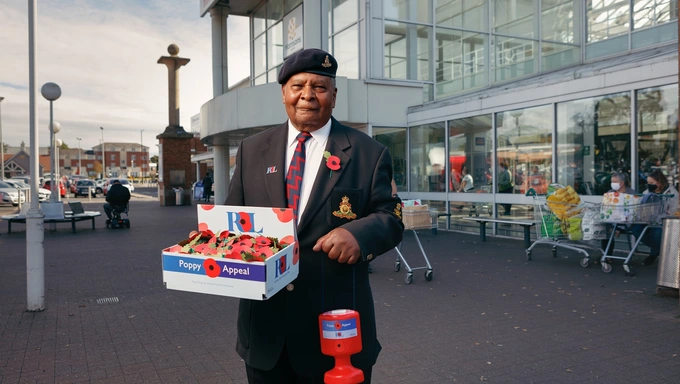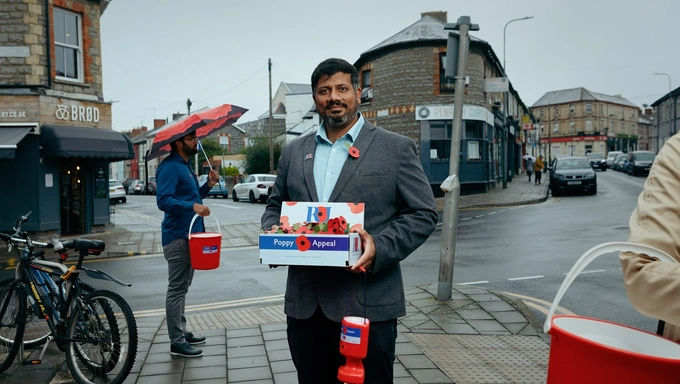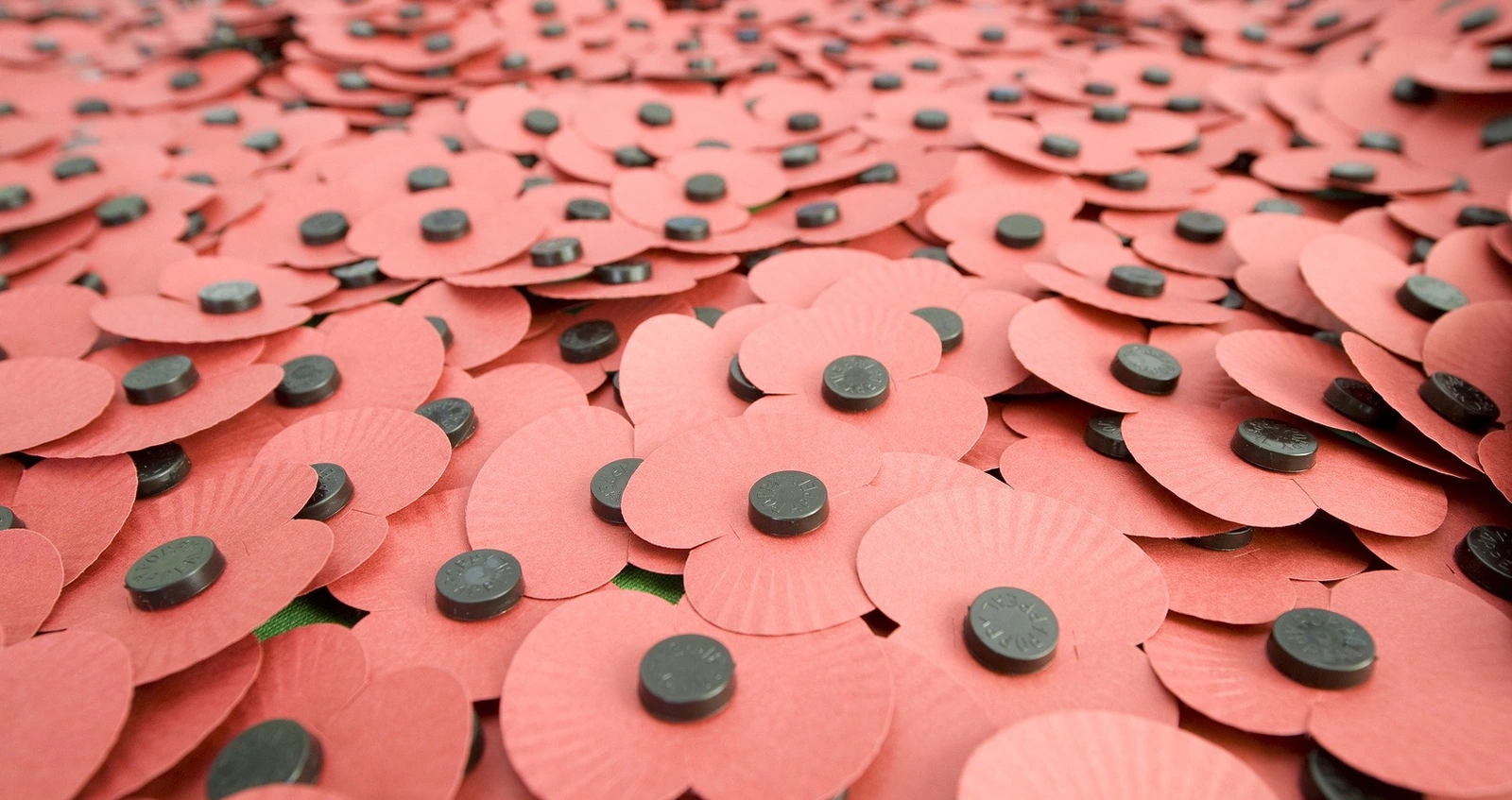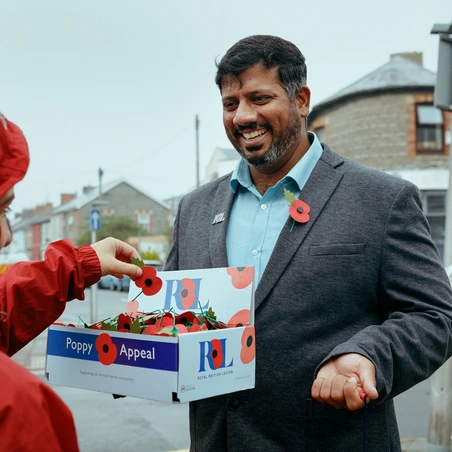
1. Wearing a poppy is a show of support for the service and sacrifice of our Armed Forces, veterans and their families
It represents all those who lost their lives on active service, from the beginning of the First World War right up to present day.
It also honours the contribution of civilian services and the uniformed services which contribute to national peace and security and acknowledges innocent civilians who have lost their lives in conflict and acts of terrorism.
2. The poppy has been a symbol of Remembrance for over 100 years
The poppy became a symbol of Remembrance and hope for a peaceful future in the aftermath of the First World War.
Since 1921 our collectors have been at the heart of the Poppy Appeal. And this year they will be back in local communitites across the UK to collect donations that help RBL continue it's vital work.
3. There is no ‘correct’ way to wear a poppy
Wearing a poppy is a personal choice reflecting individual and personal memories.
It’s a matter of personal choice whether someone chooses to wear a poppy and how they choose to wear it.
From paper poppies to pins, bag charms to pet poppies, the best way to wear a poppy is simply with pride.
4. The poppy is red because that’s the natural colour of the poppy flower
But out of this devastation the delicate but resilient bright red Flanders poppies grew and flourished in their thousands.
5. The red poppy directly supports the Armed Forces community
The red poppy is worn as a show of support for the Armed Forces communities across the UK, Allied Forces and the Commonwealth.
Only donations from the sale of our red poppies go directly towards helping the Armed Forces community.

6. Poppies are sold in every community across the UK
Every year the rumour that poppies have been banned in some communities resurfaces. This is simply not true and each year thousands of volunteers from all walks of life take to the streets, train stations and supermarkets around the country to help us raise vital funds for the Armed Forces community.
Everyone who wants to take part in remembrance can do so, either by making a donation for our traditional poppy, or by taking part in other activities.
7. A poem inspired the use of the poppy as a symbol of Remembrance
The poem inspired American War Secretary, Moina Michael, who bought poppies to sell to her friends to raise money for Servicemen in need after the First World War.
This was adopted by The (Royal) British Legion in 1921 who ordered a million poppies from Anna Guérin in France and commissioned a further 8 million to be manufactured in Britain. These were sold on 11 November that
year in the first ever Poppy Appeal.
The poppy has been adopted as a symbol of Remembrance ever since.
8. Poppies weren’t always sold with leaves
Like the natural flower, the original version of the poppy did not feature a leaf.
A leaf was first introduced in the 1960s and they slowly became an optional extra.
By 1984 demand for them had grown to 12 million a year, and in 1995 poppies with leaves included were made available for the first time.
9. Donations for poppies helps families like Lawrence's
10. And funds recovery services like the Battle Back Centre
11. Poppies are recyclable
For the 2023 Poppy Appeal we are introducing new plastic-free poppies alongside our remaining stocks of the current poppy.
Plastic-free poppies can be recycled in ordinary paper recycling collections.
And poppies containing single-use plastic can be returned to Sainsbury’s stores for recycling.
There are also a variety of enamel poppy pins that you can wear instead of a paper poppy and we have a range of alternatives available from our Poppy Shop at www.poppyshop.org.uk. You can then choose to make a donation to the appeal every year.













